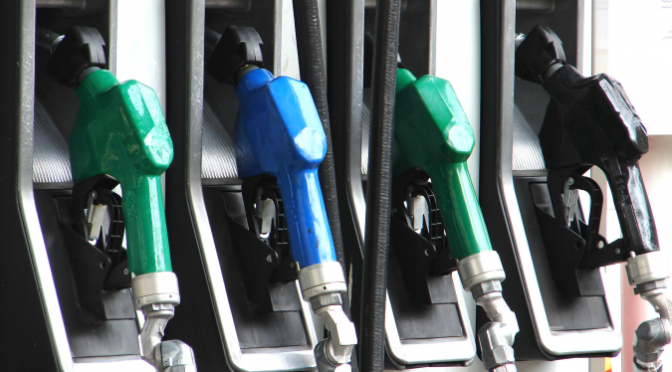Double Your Gas Mileage
Have you ever noticed that cars have a different MPG for city and highway? Why is that? I think I figured it out. The difference is that in “city” driving, you have to hit the brake a lot more. If you are driving on the highway, you can go miles and miles without ever hitting the brake if there is no traffic around you. In city driving, you hit the brake because there is more traffic around you and more stop signs and signals.
So there is one underlying principle to vastly improve your gas mileage, hit the brake less. Here’s an example that almost anyone can try. If there is good visibility, you can see the stop light in front of you, just turned from green to yellow. Immediately, you should take your foot off the accelerator. Any gas you burn at this point, will be wasted because you surely have to stop. In fact, the ideal situation is that you are able to stop without hitting the brake at all. You coast into the stop light and the weight of the car slows itself down so you never have to hit the brake. At that point, you have maximized your gas mileage.
Once you get the hang of it, you will become much more aware of the other cars around you that are wasting gas. Lots of cars accelerate quickly and then brake quickly. As you are coasting to a stop, lots of cars will pass you and then slam on the brakes. There really is no point in racing to a red light.
There are lots of other interesting ramifications to this new energy saving style of driving. For example, never tail gate When you tail gate, you are actually daring the driver in front of you to force you to hit your brake and waste energy. It is much better to be a little back and then release the accelerator rather than hit the brake.
Another one is that you when you turn, you want to keep as much of the velocity of the car (brake less), so you have more speed coming out of the curve.
I don’t spend much time driving on highways, so I have found that you can actually double your MPG by following this simple tip.Have you ever noticed that cars have a different MPG for city and highway? Why is that? I think I figured it out. The difference is that in “city” driving, you have to hit the brake a lot more. If you are driving on the highway, you can go miles and miles without ever hitting the brake if there is no traffic around you. In city driving, you hit the brake because there is more traffic around you and more stop signs and signals.
So there is one underlying principle to vastly improve your gas mileage, hit the brake less. Here’s an example that almost anyone can try. If there is good visibility, you can see the stop light in front of you, just turned from green to yellow. Immediately, you should take your foot off the accelerator. Any gas you burn at this point, will be wasted because you surely have to stop. In fact, the ideal situation is that you are able to stop without hitting the brake at all. You coast into the stop light and the weight of the car slows itself down so you never have to hit the brake. At that point, you have maximized your gas mileage.
Once you get the hang of it, you will become much more aware of the other cars around you that are wasting gas. Lots of cars accelerate quickly and then brake quickly. As you are coasting to a stop, lots of cars will pass you and then slam on the brakes. There really is no point in racing to a red light.
There are lots of other interesting ramifications to this new energy saving style of driving. For example, never tail gate When you tail gate, you are actually daring the driver in front of you to force you to hit your brake and waste energy. It is much better to be a little back and then release the accelerator rather than hit the brake.
Another one is that you when you turn, you want to keep as much of the velocity of the car (brake less), so you have more speed coming out of the curve.
I don’t spend much time driving on highways, so I have found that you can actually double your MPG by following this simple tip. The gas is a precious resource but the way we drive sure doesn’t show it.

